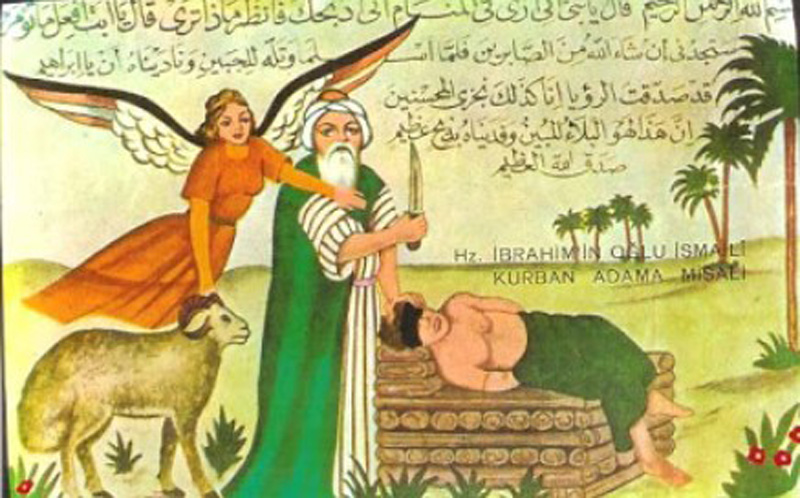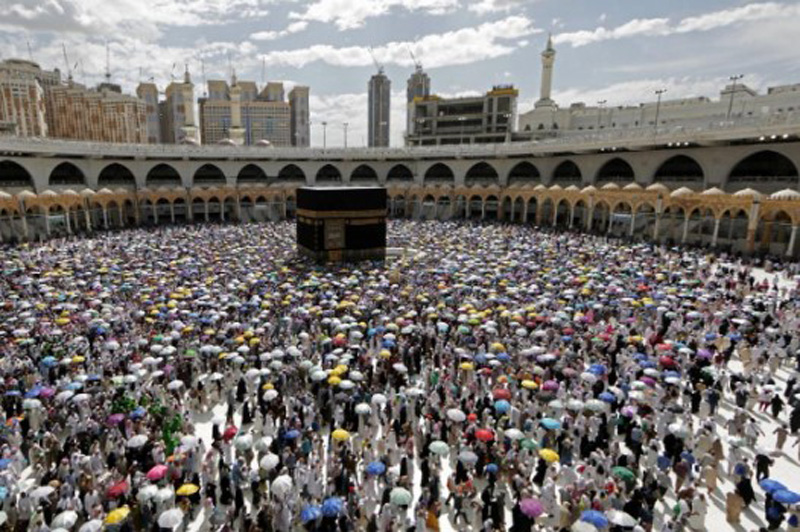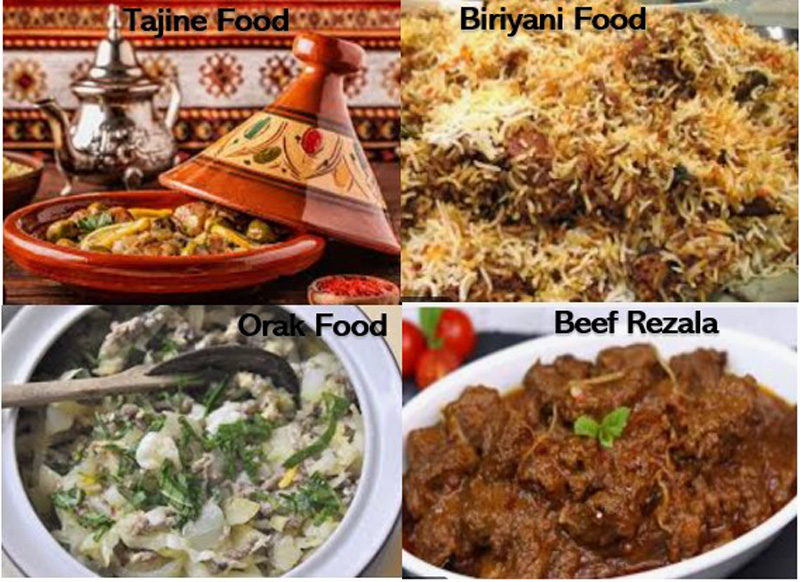Eid-ul-Azha: Muslim History and Significance.

Eid-ul-Azha, Muslim history, and its significance are immensely important in the Islamic calendar. It is also known as the festival of sacrifice. Millions of Muslims worldwide chant ‘Allahu Akbar, Allahu Akbar, La-Ilaha Illallahu Wallahu Akbar, Allahu Akbar, Walillahil Hamd’. This festival also signifies an act of obedience to Allah’s commands and a great effort to please Allah. When Hazrat Ibrahim saw in his dream that he had to sacrifice his beloved things in the name of Allah, Then he realized what could be dearer than his mortal son and expressed his willingness to sacrifice his son Ismail. That event is a deep understanding of the history, significance of rituals, and important religious events of Eid-ul-Azha. Leran in deatil.
Historical context of Eid-ul-Azha:

Eid al-Adha begins with the sacrifice of Ibrahim, the son of Prophet Ibrahim, a central figure in Islamic, Christian, and Jewish traditions. Ibrahim (AS) received instructions to sacrifice in a dream. He ordered the sacrifice of 100 camels in a row, but after that, he was ordered once more and ultimately decided to sacrifice his beloved son Ismail.
Then, he proceeded to the Maidan of Arafat, preparing to sacrifice his son. At this time, Shaitan persuaded Ibrahim and his family to disobey Allah’s command. Abraham rejected Satan by throwing stones. In his memory, symbolic stones at the 3 pillars were built to mark the location of Satan during the Hajj. When Ibrahim tries to stab his son in the throat for the sacrifice on Mount Arafat, he is surprised to find that an animal was slaughtered instead of his son. Abraham passed the ordeal by obeying God’s commands. Allah was pleased with this and accepted Ibrahim as His khalil (friend).
The significance of Eid-ul-Azha.

The 10th of Zil-Hajj, (last month of the Islamic lunar calendar) is when Eid-ul-Azha is. At this time, the Hajj pilgrimage ended in Mecca. Hajj is a unique example of the Muslim Ummah’s unity, solidarity, and brotherhood. Which every year inspires us with Tawheed motivation. This festival serves multiple purposes in Muslims’ spiritual and social lives. The father of the Muslim nation is Hazrat Ibrahim (Sura al-Hajj 78). Eid-ul-Azha is a festival commemorating the supreme sacrifice of Ibrahim (as), Bibi Hajera, and Ismail. Therefore, on the day of Eid-ul-Azha, the entire Muslim nation strives to attain the pleasure of Allah by observing the Abrahamic Sunnah. Millions of Muslims from all over the world gather in Makkah-Madinah, commemorating Ibrahim (A.S.) on the occasion of Hajj in the month of Zilhajj.
The spiritual significance of Eid-ul-Azha
Qurbani is a part of Eid-ul-Azha festival. Sacrifice is a means of purification and sanctification. Muslims believe that sacrifice is a physical act and an expression of their inner faith. It teaches them to trust Allah’s wisdom and embrace the spirit of sacrifice daily. The festival also reinforces the concept of tawhid (oneness of God) and the unity of the Muslim ummah (community).
Shall we think of feeding the poor and the poor only at the time of Qurbani? And will the rest of the year forget them? One should give up one’s wealth for the welfare of other people in the hope of gaining nearness to Allah. If this attitude of sacrifice develops. The sacrifice during Eid-ul-Adha has been beneficial and helpful for us.
Eid-ul-Azha Prayers and Takbeer.
The glorification of Allah begins with the recitation of the Takbeer (‘Allahu Akbar, Allahu Akbar, La-Ilaha Illallahu Wallahu Akbar, Allahu Akbar, Walillahil Hamd”). Hazrat Jibreel got the order from Allah to bring Dumba from heaven when Hazrat Ismail was ready for sacrifice. Before slaughtering Hazrat Ismail, Hazrat Jibreel (AS) kept proclaiming the superiority of Allah in the sky (Allahu Akbar; Allahu Akbar) so that he could reach Dumba before slaughtering him. When Hazrat Ibrahim (AS) heard the sound of Takbeer, opened his eyes. He saw that a Dumba slaughtered instead of his son. Then he declared the Kalima of Tawheed and its excellence like this: La ilaha illallahu allahu akbar. After hearing this priceless message of Tawheed from the mouth of the Father, Hazrat Ismail Alaihis Salam also praised the Almighty and said Allahu Akbar wa Lillahil Hamd.
Food and celebration of Eid-ul-Azha festival.

Eid al-Adha is a time of feasting and celebration. Families prepare elaborate meals consisting of sacrificial meat. Traditional dishes vary across cultures but often include rich stews, biryani, kebabs, and other delicacies. These meals share all family, friends, and neighbors, creating a spirit of togetherness. Food prepared from meat is more noticeable during the Eid-ul-Azhar festival. Eight traditional dishes from different countries of the world are here on the occasion of Eid-ul-Azha.
Tajine (Morocco, Algeria, Tunisia, Libya): slow cooking of chicken, beef or fish with various vegetables.
Biryani: Rice and meat cooked all together (India, Pakistan, Bangladesh):
Lamb roast (Middle East, Central Asia, Africa, Europe, America) In almost all countries, lamb roast or Khasi roast.
Oruk (Turkey): Ground beef, crushed peanuts, onion flakes, and other spices with semolina and flour yeast to make oruk. food.
Economics of Eid-ul-Azha and festivals.
Various festivals entertain people and are a form of business activity. Which financially strengthens its own economy. Not only in Bangladesh, the demand for goods and services increases worldwide due to festivals. During the festive season, extra money comes into the hands of consumers, and due to this, there is an urge to increase supply along with demand. All small and large companies focus on increasing production as a result. During Eid-ul-Azha, almost all countries, including Bangladesh and Pakistan, see the sale of many cows, goats, buffaloes, and camels. As a result, people can buy cheap and sell at high prices due to animal husbandry and fattening, which, for good reason, boosts the economy. As people’s purchasing power increases, the economy of the Eid festival continues to expand. As a result, the entire economy has a positive impact.
Conclusion.
Eid-ul-Azha stands as a testament to Islam’s enduring values of faith, sacrifice, and charity. The festival’s historical roots in the story of Prophet Abraham’s devotion to God highlight the importance of obedience and submission to the divine will. Through rituals such as Qurbani, communal prayers, and acts of charity, Muslims worldwide celebrate this festival with reverence and joy.
The social and cultural significance of Eid-ul-Azha transcends religious boundaries, promoting unity, compassion, and generosity. As Muslims come together to commemorate this sacred event, they reaffirm their commitment to the principles of Islam and strengthen the bonds between their communities. Eid-ul-Azha, with its rich history and profound significance, remains a cornerstone of the Islamic faith and a beacon of spiritual and social harmony.
Author: Abdul Aziz
Content writer
